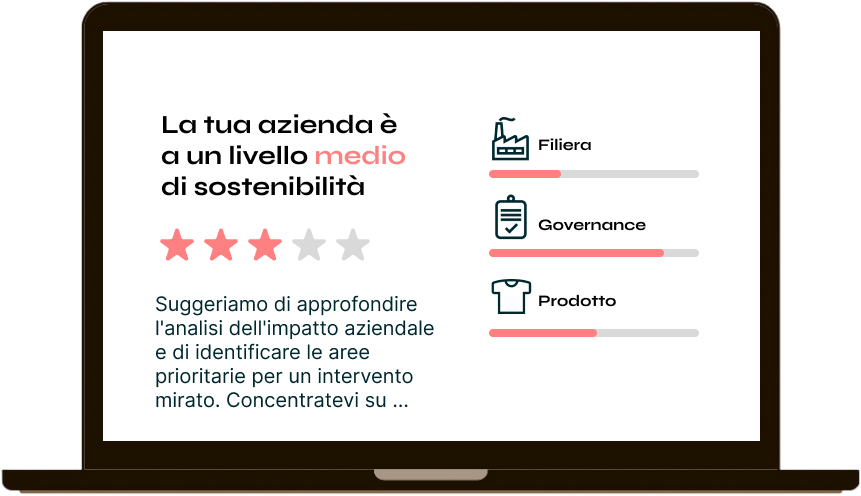Interview with Par.co Denim: Short Supply Chain, Collaboration and Materials
The Par.co Denim brand was founded in 2014 by two cousins, Par.co is in fact an acronym for Parimbelli cousins.
The idea was to create a brand that would produce high quality jeans in Italy, in a sustainable way and leaving as little impact on the planet as possible.
Par.Co Denim wants to be a brand that feels good to buy and even better to wear.
Fedora Agosti, Sustainability Ambassador, starts the interview by telling us about the origins of the brand. In 2012, Matteo Parco, CEO and Founder of Par.co Denim, decided to start a business starring denim, a fabric that the entrepreneur considered particularly interesting.
The spirit with which the business was born, however, was different from many brands that specialize in selling jeans. Matteo wanted to offer products that went through a sustainable supply chain and, more specifically, that were made from sustainable materials such as, in the case of Par.co Denim, from organic cotton
Fedora reminds us that 10 years ago, the topic of sustainability was much less known and less taken into consideration than it is today. There was less awareness and finding suppliers of organic fabrics was a real challenge. The know-how acquired over the years by Par.co Denim has therefore enabled it to also operate as a private label for both Italian and international clients.
However, the feature that sets Par.co denim apart as a sustainable denim brand is its short supply chain.
The focus on the supply chain allows them a twofold advantage: the first is to be able to constantly monitor the various production steps through factory audit activities and, therefore, to make sure that the various production steps are carried out correctly. The second is the significant reduction in CO2 emissions.
Regarding the first point, in the interview done with Fedora, like the one done with Danielle Arzaga for Candiani Denim, the importance of the relationship of trust and collaboration with one's suppliers emerges.
The founder of the brand himself, Matteo, was able to deepen his knowledge of denim fabric thanks to a previous work experience in the same field, in which he was involved, however, in the development and sale of Japanese artisanal fabrics. This experience allowed him to forge relationships with the world's top denim manufacturers, giving a strong boost to his expertise.
Among Par.co Denim's suppliers is one that the Cikis team is now very familiar with: Berto Industria Tessile. Fedora tells us how the "Bio eco denim", a denim fabric made from GOTS-certified organic cotton and organic indigo dye (also GOTS-certified) produced by Berto has been used by the company for many collections.
The second advantage of the short supply chain, namely the reduction of CO2 emissions, is demonstrated by Fedora through a study done by the nonprofit OEW - Organization for a World of Solidarity, in which it was possible to estimate in km the journey that a generic pair of jeans takes from the cotton plant to a pair of jeans.
The estimate is around 44 000 km because each stage of the supply chain takes place in a different country, if not continent. Par.co Denim has managed to reduce the journey to 8 000 km, a truly remarkable achievement considering it is a 60 percent reduction.
In order to operate in terms of sustainability, the company refers to certifications such as GOTS or GRS (read about them here and here, respectively, to know what they are) which act as a real guarantee for consumers.
Among Par.co Denim's projects, Fedora tells us about an upcoming collection that will also include outerwear (denim shirts and jackets) in order to offer its customers a complete total look.
In addition, in order to minimize waste, the brand aims to extend the practice of pre-order (which is currently active only on some capsule collections) as the main mode of purchase and to understand how to manage product end-of-life by raising consumer awareness.
Conclusions
Par.co Denim is the third case study of a sustainable fashion brand imprinted on the world of the distinctive blue-colored fabric: we started with the SME of Berto Industria Tessile, and then talked about Candiani Denim, a large company with worldwide business, to Par.co Denim, a smaller company but with excellent growth prospects, which shares with the others a passion for denim and respect for people and the environment.
Par.co Denim confirmed to us how synergy with its partners and stakeholders can be successful for an efficient business model. Could this be the solution for a more sustainable fashion industry?
Get articles like this and the latest updates on sustainable fashion automatically!
